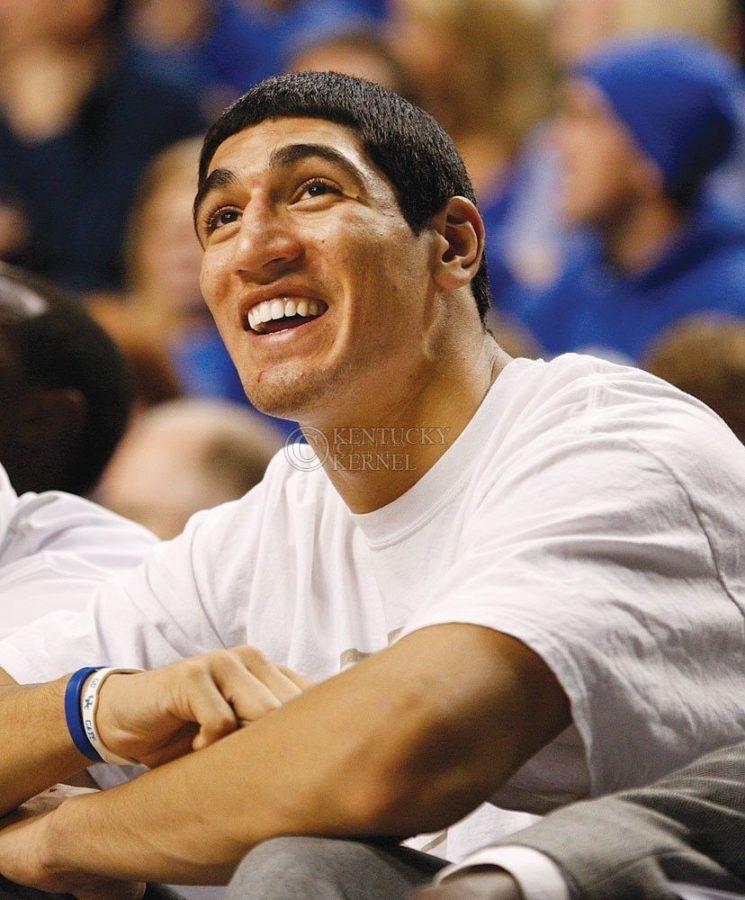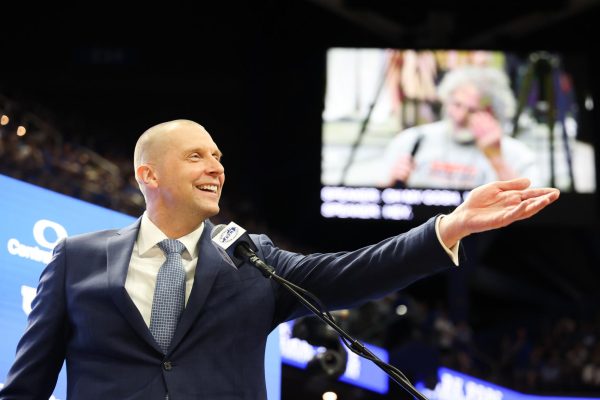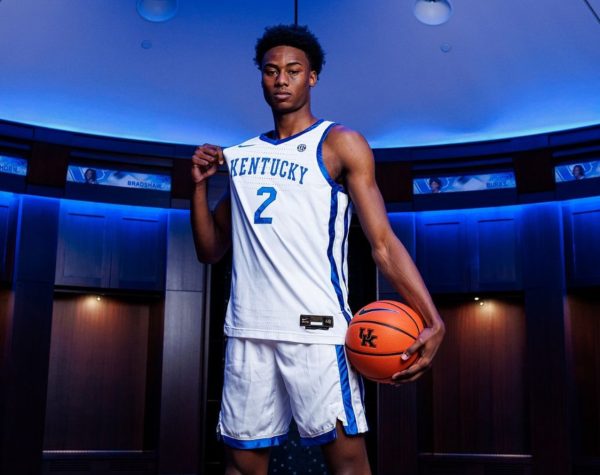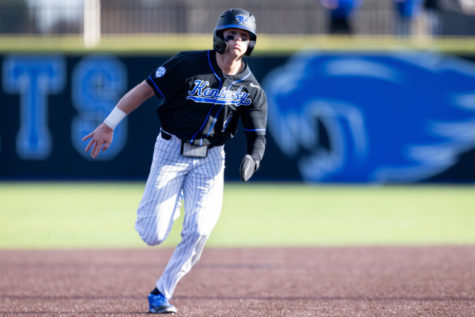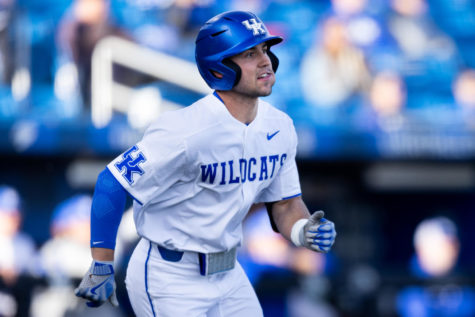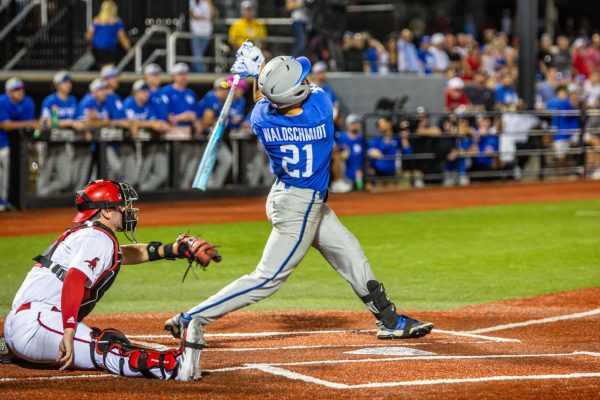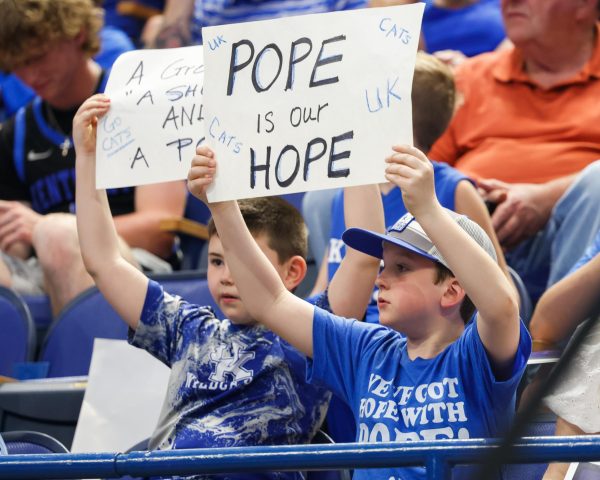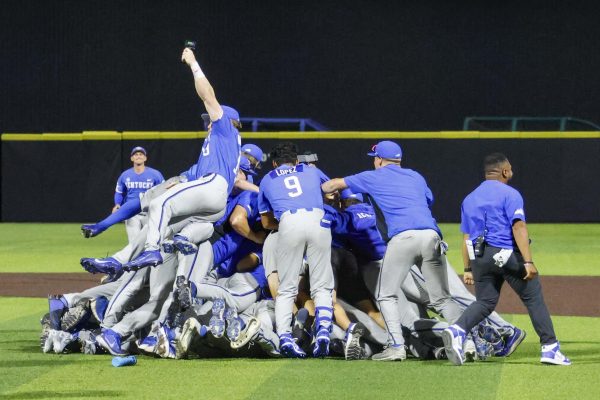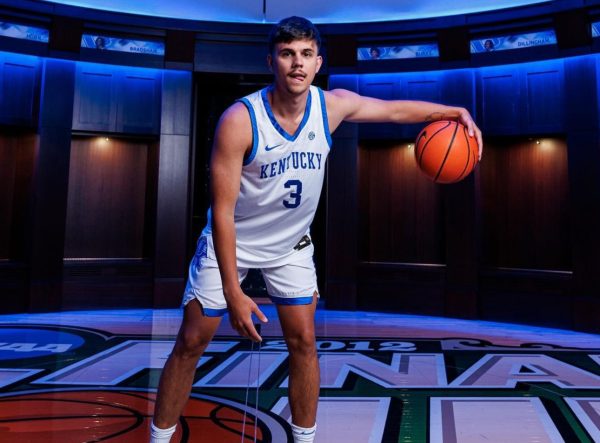NCAA must review eligibility policy
November 11, 2010
Not since the height of the Ottoman Empire has a Turkish import been declared to have this much value. And not since ancient times has a governing body been so unnecessarily bureaucratic.
The UK men’s basketball team opens the season Friday against East Tennessee State, yet the eligibility of Turkish big man Enes Kanter still remains in doubt as the NCAA continues to investigate his amateur status.
Kanter’s eligibility is of the utmost importance to the Cats, whose frontcourt was decimated when DeMarcus Cousins and Patrick Patterson both left school early for the NBA. But of course, Kanter’s value hinges on his ability to actually play.
A ruling from the NCAA regarding Kanter was supposed to have come in early October (oops), but Kanter is resigned to watch his teammates practice and play from the sideline.
Like Kanter, Josh Selby, one of the top-rated freshman in the class of 2010, also faces eligibility concerns and his playing status for the Kansas Jayhawks remains in limbo.
Not only is it unfair of the NCAA to keep teams in the dark regarding their players’ eligibility, it is unfair to the players in question.
In the case of Kanter, it seems like a decision could be easily made. Fenerbahce Ulker general manager Nedim Karakas told the New York Times that Kanter received more than $100,000 in cash and benefits over three years. Kanter’s father disputes the team’s claims.
Naturally, Karakas doesn’t want to lose his player to college for nothing, while Kanter could easily settle for playing professionally overseas (and a big paycheck), so how hard could the situation really be to resolve? Either the documentation exists or it doesn’t.
Some UK fans are quick to point to a possible NCAA vendetta against their beloved basketball team and UK head coach John Calipari (who has had two Final Four appearances vacated). A vendetta would assume that the NCAA has foresight and planning ability.
Recall that last year, former Cat John Wall was investigated days before the season for playing AAU hoops for a certified agent; Wall was forced to sit out the first two games and pay back his travel expenses. That investigation was over in a snap.
Conversely, Mississippi State’s top recruit last year, Renardo Sidney, didn’t receive a decision on his eligibility until March. He was fined and not allowed to play the rest of the year after taking improper benefits. That investigation was epic.
The Wall and Sidney cases don’t reflect Kanter’s scenario, however. Similarly, West Virginia’s Deniz Kilicli, also a Turk, missed 20 games last season, one for each of the games he appeared in as a “professional” in Europe—what was known as the NCAA’s 1-for-1 policy.
The NCAA no longer employs the 1-for-1 rule, meaning Kanter can’t simply sit out nine games to make up for having appeared in nine games for Fenerbahce. At this point, that would probably be the best and quickest option for Kanter and UK.
If a slow and methodical eligibility process ensured the right choice was being made, that would be one thing. However, we should question the eligibility process when flaws exist.
Former Cat Eric Bledsoe’s change in his academic performance in high school caught the eye of the NCAA this summer, which would have been acceptable, but only if the NCAA had conducted its investigation a year earlier.
Bledsoe was initially cleared by the NCAA, played his freshman year, declared for the NBA draft, but then the NCAA opted for a revisionist policy; if the initial screening process for eligibility is so stringent, why do old cases regarding eligibility (especially those involving players who were no longer on a roster i.e. Bledsoe) need to be revisited?
If and when Kanter plays this season, will the NCAA ultimately come back and question the juice box he received as a gift in elementary school and call it an improper benefit?
It seems the NCAA has put so much value in protecting its eligibility process that it’s forgotten the value of the student-athlete, without whom the NCAA would cease to exist.









































































































































